A CHARTER OF THE ECCLESIAL LIFE OF THE DIOCESE OF BROKEN BAY

Witnesses Resurrection of the












We, the People of God: bishop, priests and deacons, lay women and men, consecrated religious, all members of the Diocese of Broken Bay, are called together in communion with Jesus Christ, the Head of the Church, to share in His mission of salvation, healing, love, and mercy.
Grounded in the Word of God and nourished by the Sacraments, especially the Eucharist, we seek to regenerate a Church that is united in the Holy Spirit: one, holy, catholic, apostolic.
As a diocesan family, we embrace the vocation of every baptised person, supporting one another in our shared mission and the deepening of our relationship with Christ. In light of the
ongoing commitment to building a culture of vocation, promoting the dignity of every human being, and living as authentic disciples, we will live out this Charter in preparation for a Synod of our local Church. The Charter also will inform our journey from the Holy Year of Hope 2025 to the commemoration of the 2000th anniversary of the passion and resurrection of Jesus Christ in 2033.
This Charter is a living document, to be discussed, discerned, implemented and reviewed, under the pastoral care of the Bishop of Broken Bay in collaboration with the clergy, faithful, and all members of the Diocese. May we be faithful stewards of the gifts of God, working in communion with Jesus Christ for the salvation of all.
Most Rev Anthony Randazzo DD JCL Bishop of Broken Bay
• The Centrality of the Word of God and Revelation: The foundation of our Church’s mission and the expression of our faith is embedded in the Word of God, revealed through Sacred Scripture and Tradition: Long ago God spoke to our ancestors in many and various ways by the prophets, but in these last days he has spoken to us by a Son, whom he appointed heir of all things, through whom he also created the worlds (Hebrews 1:1-2). We are called to proclaim the truth of Jesus Christ in all its fullness and to live as witnesses to the salvation offered in His life, death, and resurrection.
• The Fully Conscious, and Active Participation of All the People of God: All members of the Church –Christ’s lay faithful and the ordained clergy – share in the
responsibility of participating fully in the worship, prayer, sacraments, and spiritual life of the Church. This participation is not limited to physical presence but is an active engagement in the communion of the Church, grounded in our common baptism, confirmation, and Eucharistic life.
• The Mission of the Church in the Modern World: The Church’s mission is to be an authentic witness to Jesus Christ in the world, promoting the joy of the Gospel, which reveals the truth of His teachings on mercy, healing, love, life, justice, and the dignity of every human person. We seek to be agents of transformation and hope in the world, bringing Christ’s message to those in need, especially the poor, vulnerable, and oppressed.


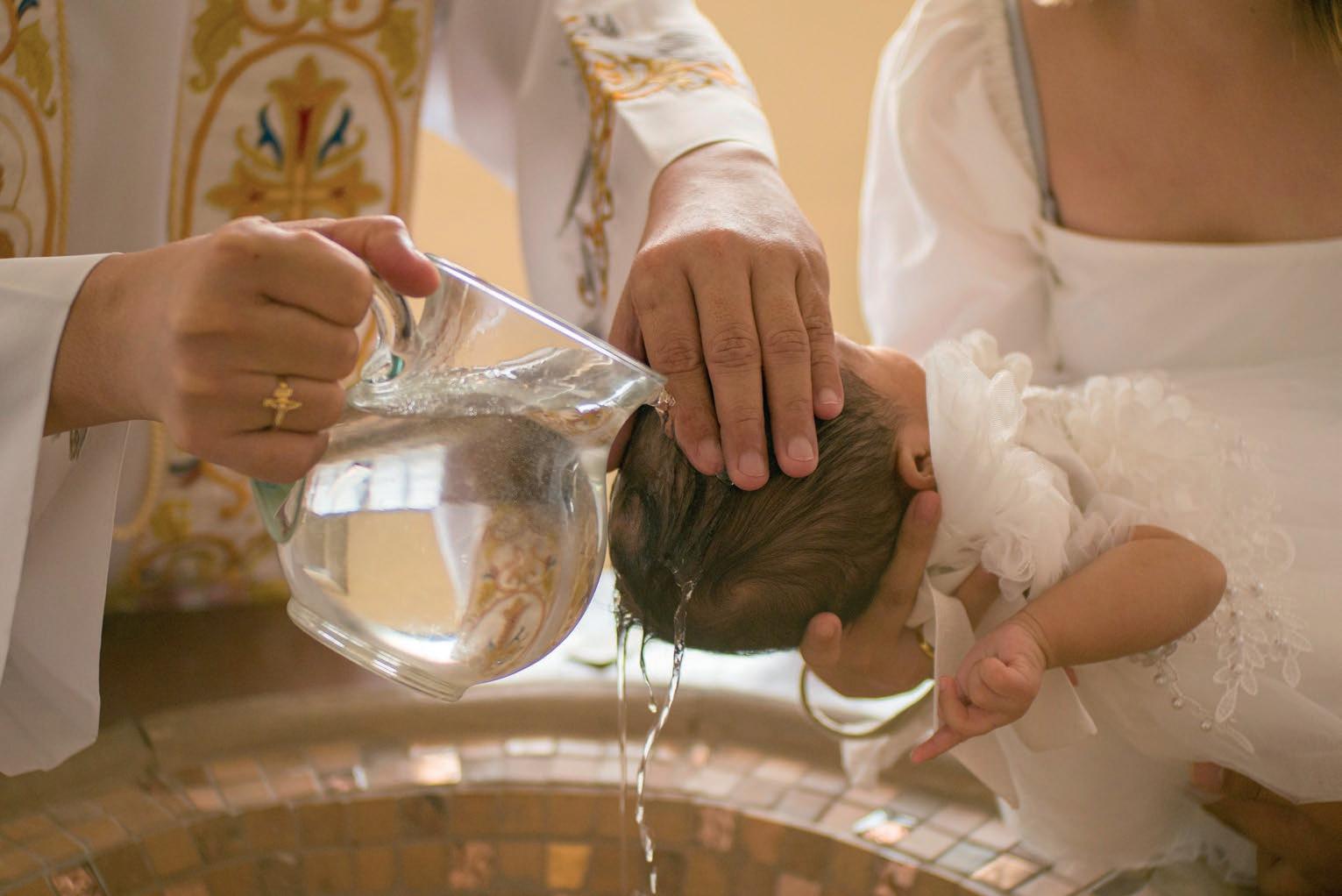

II. The Universal Call to Holiness lived out in God’s unique plan for each of us
• The Dignity of the Baptised and the Apostolate of the Laity: Every baptised person is called to live the vocation of discipleship. Christ’s lay faithful, women and men, by virtue of their baptism participate in the mission of the Church in all spheres of life, particularly through their roles in family, work, and society. The apostolate of the laity is integral to the life of the Church, and their witness is essential to the Church’s mission.
• The Vocation of Marriage: The sacrament of matrimony is the foundation of the family, and families are the first school of faith. Catholic teaching on Christian marriage, including the dignity of life, the sacredness of procreation, and the value of children, must be promoted and upheld. Families are supported spiritually, physically, psychologically, and pastorally to thrive as vibrant communities of faith.
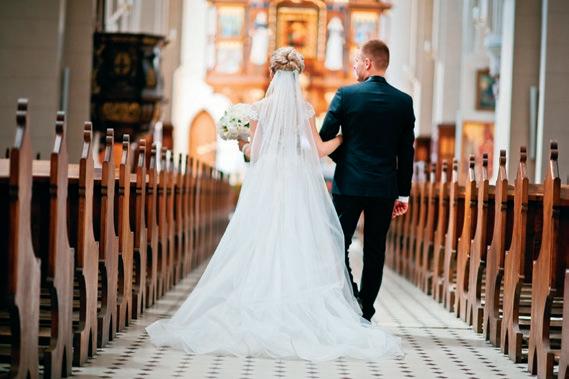
II. The Universal Call to Holiness lived out in God’s unique plan for each of us (continued)
• The Vocation to Holy Orders: The life and ministry of bishops, priests, and deacons as servants of the Church are essential for the spiritual and pastoral care of the People of God. The ordained ministry is valued, especially because we are a Eucharistic people. Our community of the Church is committed to supporting and nourishing our bishop, priests,
and deacons, especially through the collaboration, co-responsibility, appreciation, and prayerful support of the faithful.
• The Vocation to Consecrated Life: We recognise the importance of calling forth, accompanying, and discerning the vocation to Consecrated Life as a vital expression of the life
and mission of the Church. Consecrated women and men, through the Evangelical counsels of poverty, chastity, and obedience, are called to live a radical witness to the Kingdom of God. Their lives of prayer, sacrifice, and service are a source of inspiration and spiritual vitality for the Church.
• Commitment to Vocations: The Diocese of Broken Bay will continue to foster a culture of vocation at all levels, from families, parishes, and ecclesial communities to schools and diocesan mission. This culture, grounded in baptism, seeks to encourage young people to listen attentively to the voice of the Holy Spirit calling them, whether to marriage, priesthood, diaconate, consecrated life, or lay ministry. Parishes and ecclesial communities, under the inspiration and guidance of the Holy Spirit, will be supported to grow and thrive in their work of evangelisation and mission.
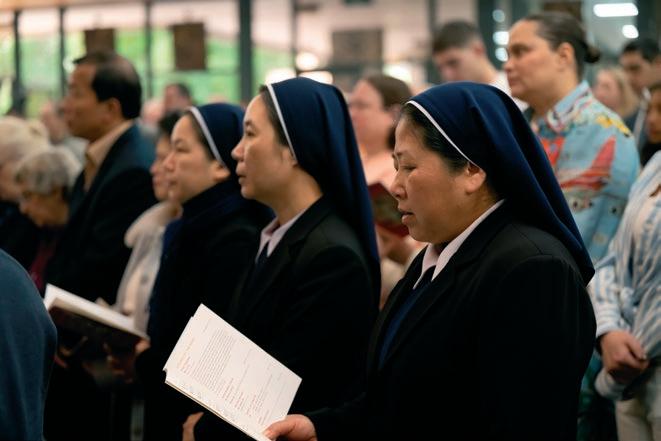
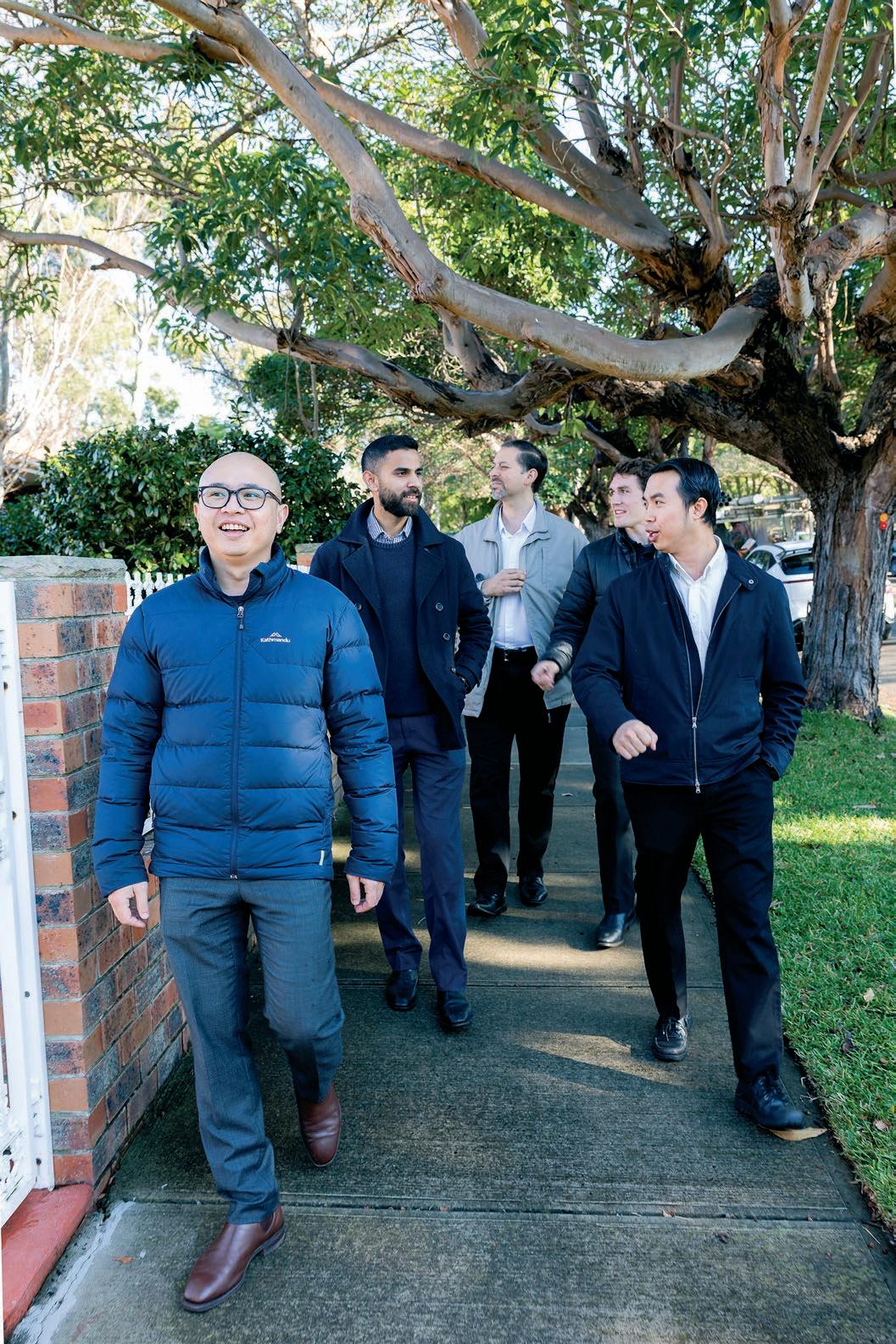


• The Role of Parents as Primary Educators: The family is the first place of catechesis, and parents are the primary educators of their children in the ways of faith and life. Parish communities will support families in their educational and spiritual responsibilities, particularly in preparing children for the sacraments and catechetical formation. The Catechesis of the Good Shepherd has an important role in assisting families to introduce kindergarten and pre-school children to the person of Jesus in a meaningful and simple way.
• Parish Based, Family Centred, School Supported Sacramental Preparation: Catholic families who present infants, children, and young people to the parish for the Sacraments of Initiation and Penance are supported by the clergy, the Diocese,


and parish communities as they journey towards full initiation into the life of the Church. Clergy and parish communities work with families to ensure that children and young people have every opportunity to be nurtured in faith and remain connected to the broader Church community through
quality catechesis for families, which is supported by religious education in Catholic Schools and public school SRE. Sacramental formation initiatives will provide pathways for families to engage in full participation in parish life through prayer, worship, and meaningful preparation.
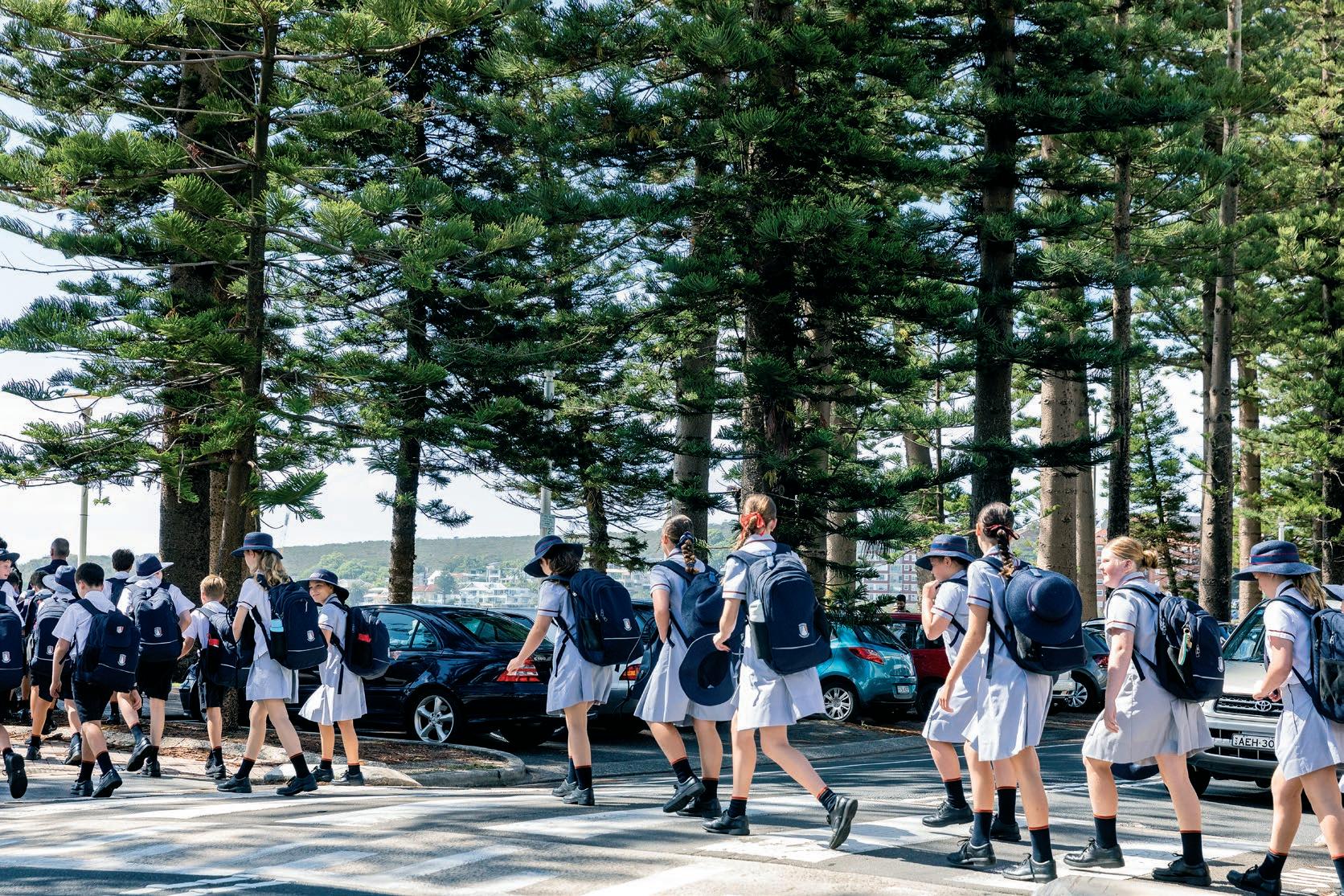
• Catholic Schools: Catholic Schools Broken Bay is a key collaborator in the educational and faith formation of our children. Our teachers and staff serve as vital partners to families, supporting them in the sacred responsibility of raising children in the faith. Our Catholic Schools foster an environment where the Gospel is known, taught, and lived, where students experience the presence of God through prayer,
worship, and service to others. Catholic schools in Broken Bay are committed to fostering a strong sense of Christian identity and a spirit of compassion, justice, and love that reflects the core values of the Catholic faith. Our schools will provide a holistic education that integrates intellectual, spiritual, physical, creative, and cultural growth, ensuring that our young people are equipped to live out their Christian faith in all aspects of life.


families who choose to send their children to public schools will be supported by the Diocese’s Confraternity of Christian Doctrine (CCD), and other diocesan initiatives. The Diocese affirms the importance of these educational settings and is committed to providing opportunities for Catholic formation, catechesis, and spiritual growth. Parish catechists herald the Gospel and bear witness to the
of the Lord. As witnesses to the Gospel, catechists help nurture the spiritual wellbeing of our young people and equip them to live their faith as individuals and as members of the community of the Church.
• Catholic
Recognising the personal choice of Catholic families to home school their children, the Diocese encourages these families to maintain a strong
Home schooling families will be supported with access to catechetical resources, spiritual formation, and opportunities for involvement in parish activities, ensuring that their children are not isolated from the broader faith community. The Diocese emphasises that home schooling should not hinder the development of relationships with other Catholic families and the shared experience of faith formation within the Church.
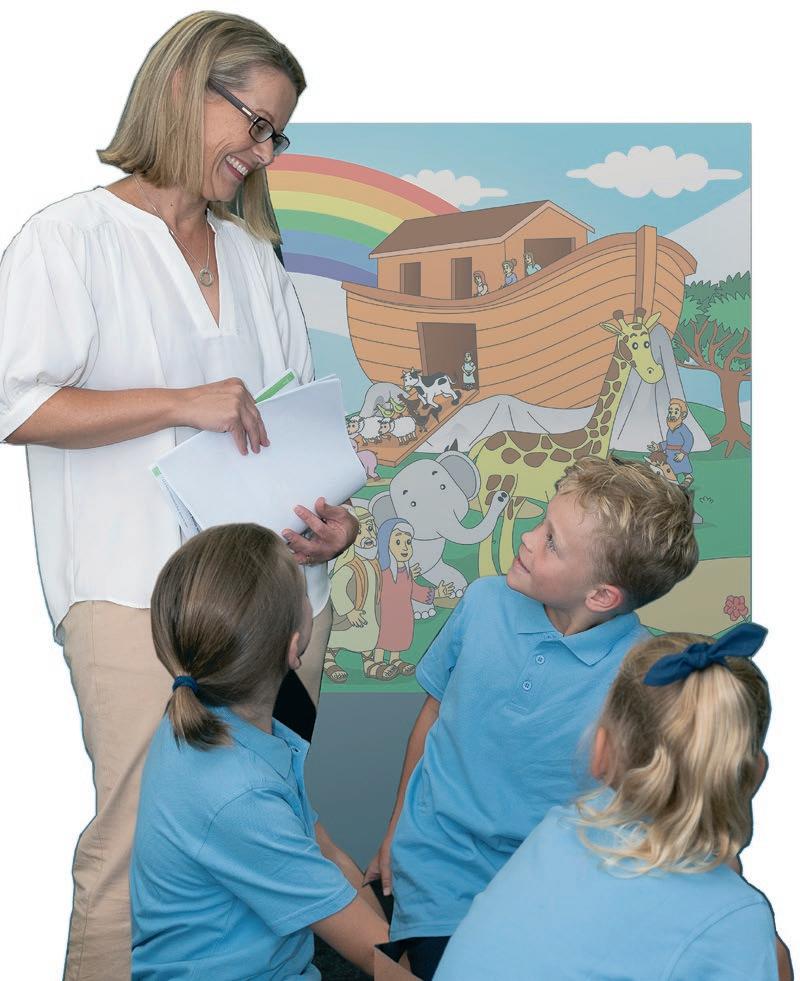
• Care for the Poor and Vulnerable: The Church of Broken Bay is committed to the service of the poor, vulnerable, and marginalised, ensuring that all individuals, regardless of their circumstances, experience the love, care, and dignity that they deserve. We are steadfast in fostering a culture of compassion, mercy, and care. We are dedicated to living and promoting a culture that safeguards the wellbeing of all people, especially children and vulnerable people. Through pastoral initiatives such as CatholicCare Broken
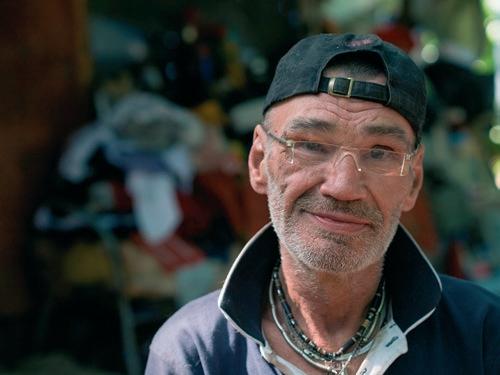
Bay, and the collective efforts of parish groups, youth ministries, and other groups dedicated to justice and peace, we will continue to reach out in love and mercy to
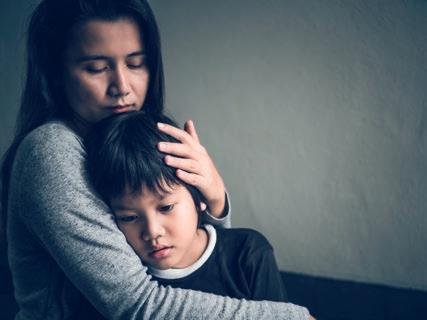
members of the Body of Christ, regardless of age,
or ethnicity, are invited to participate actively in the mission of the Church. The baptismal call to discipleship is inclusive of all people, and we are called to ensure that everyone is invited to
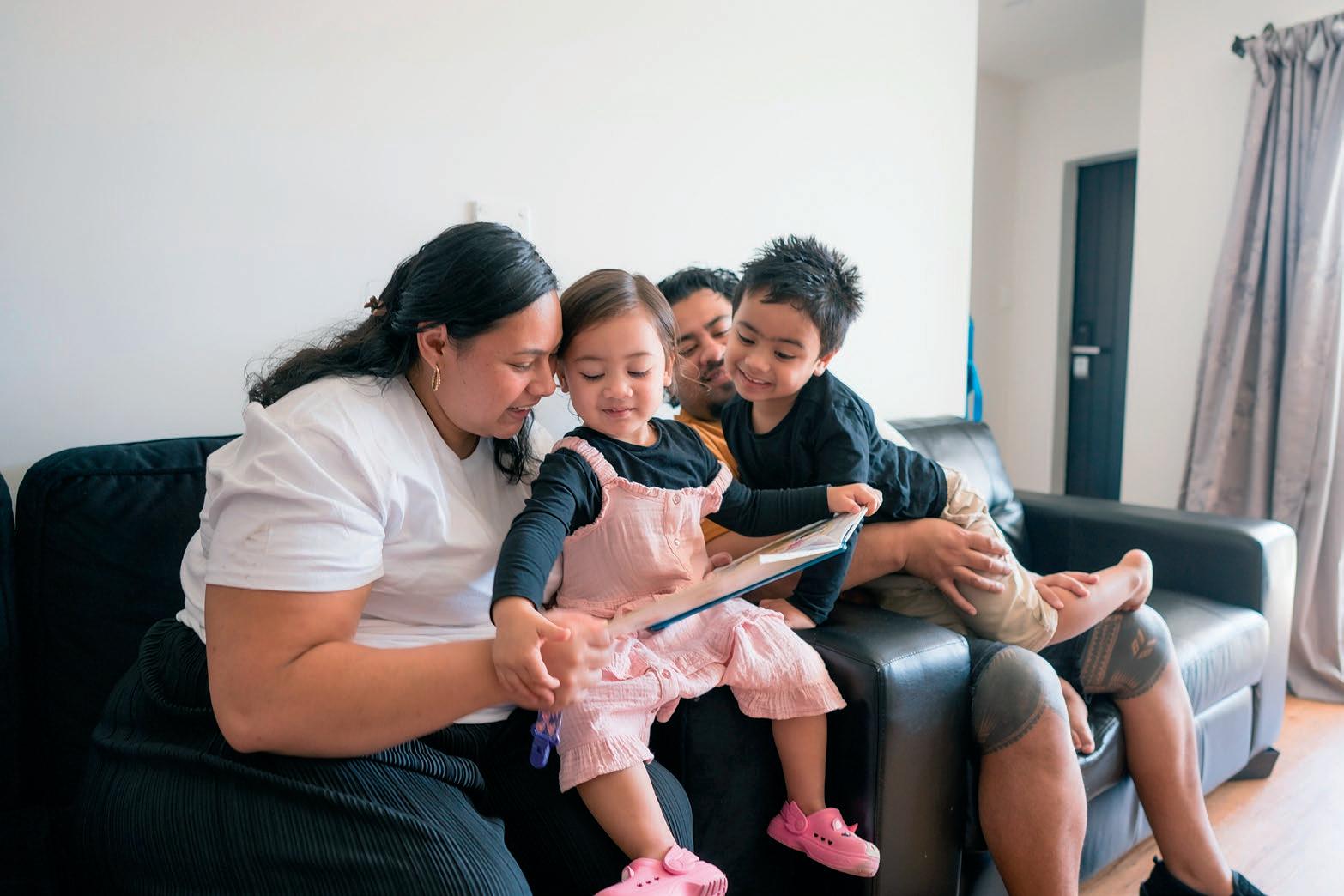
encounter the love of Christ and to participate fully in His mission. For people with special needs, we affirm that they, too, are called to know Jesus Christ and to be fully integrated into His communion and mission. All are invited to bring their unique gifts and experiences into the life of the Church. In this way, we recognise that the full participation of every baptised person is essential, not only in receiving the gifts of the Gospel but also in contributing to the mission of the Church through their actions, prayer, and support.


• Mission of Evangelisation:
The call to evangelise is not aimed only at members of the Church but extends to all people. The invitation to repentance and faith in the Gospel is extended to everyone, regardless of age, gender, background, ethnicity or culture. We are a Church that seeks to offer hospitality and a personal encounter with
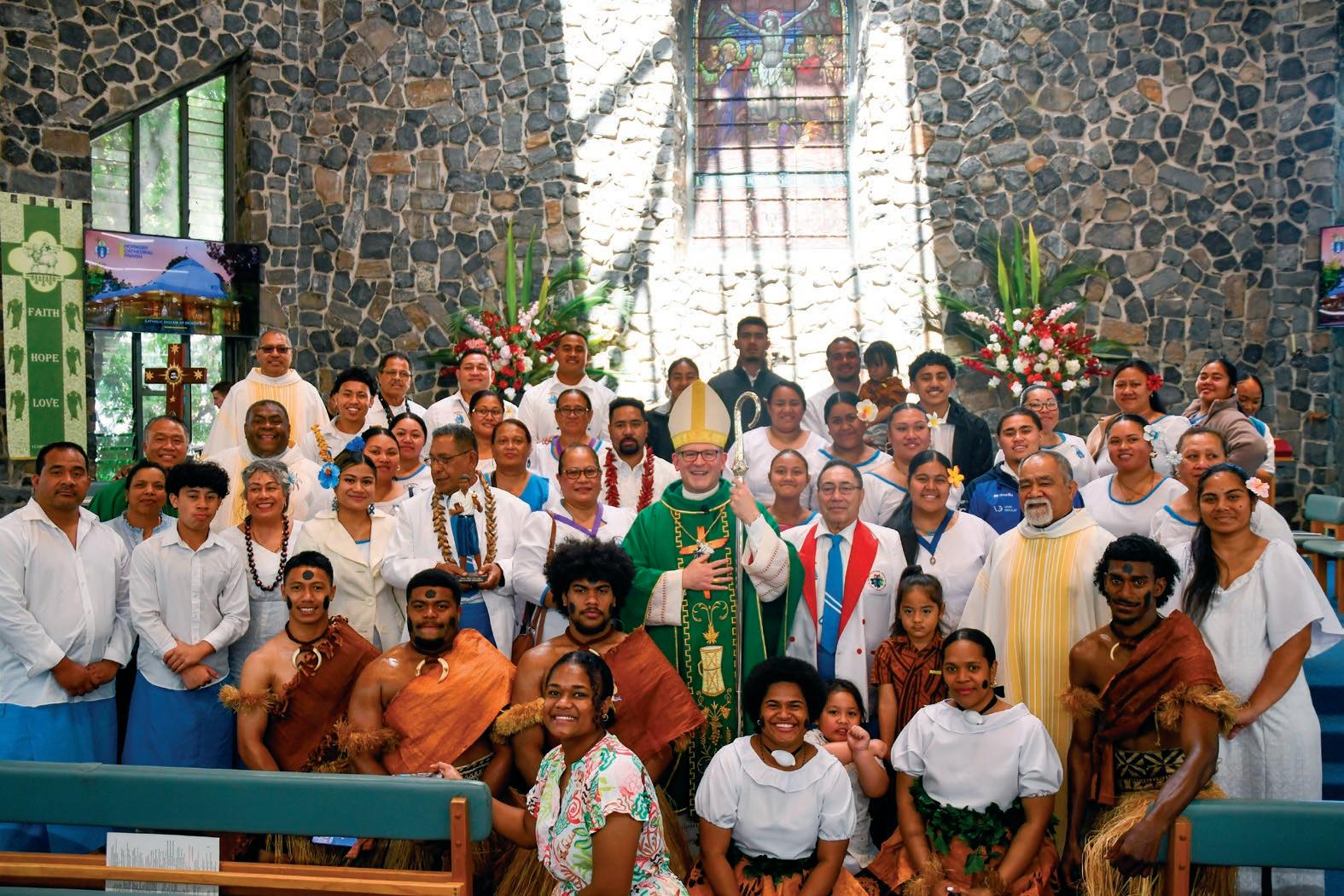
Jesus Christ, so that all might experience the love, mercy, and grace of God. All the faithful are called by God to be co-workers in the vineyard, sharing the joy and responsibility of the Gospel message in service to the world. Through collaboration and co-responsibility, the Church of Broken Bay will continue to journey into hope in communion and solidarity.

• A Culture of Mercy, Peace, Justice, and Hope: In all our actions, we are called to embody the fruits of the Holy Spirit: love, joy, peace, patience, kindness, goodness, faithfulness, gentleness, and self-control (Galatians 5:22). As members of the Body of Christ, we commit ourselves to being instruments of reconciliation, justice, and peace in the world.
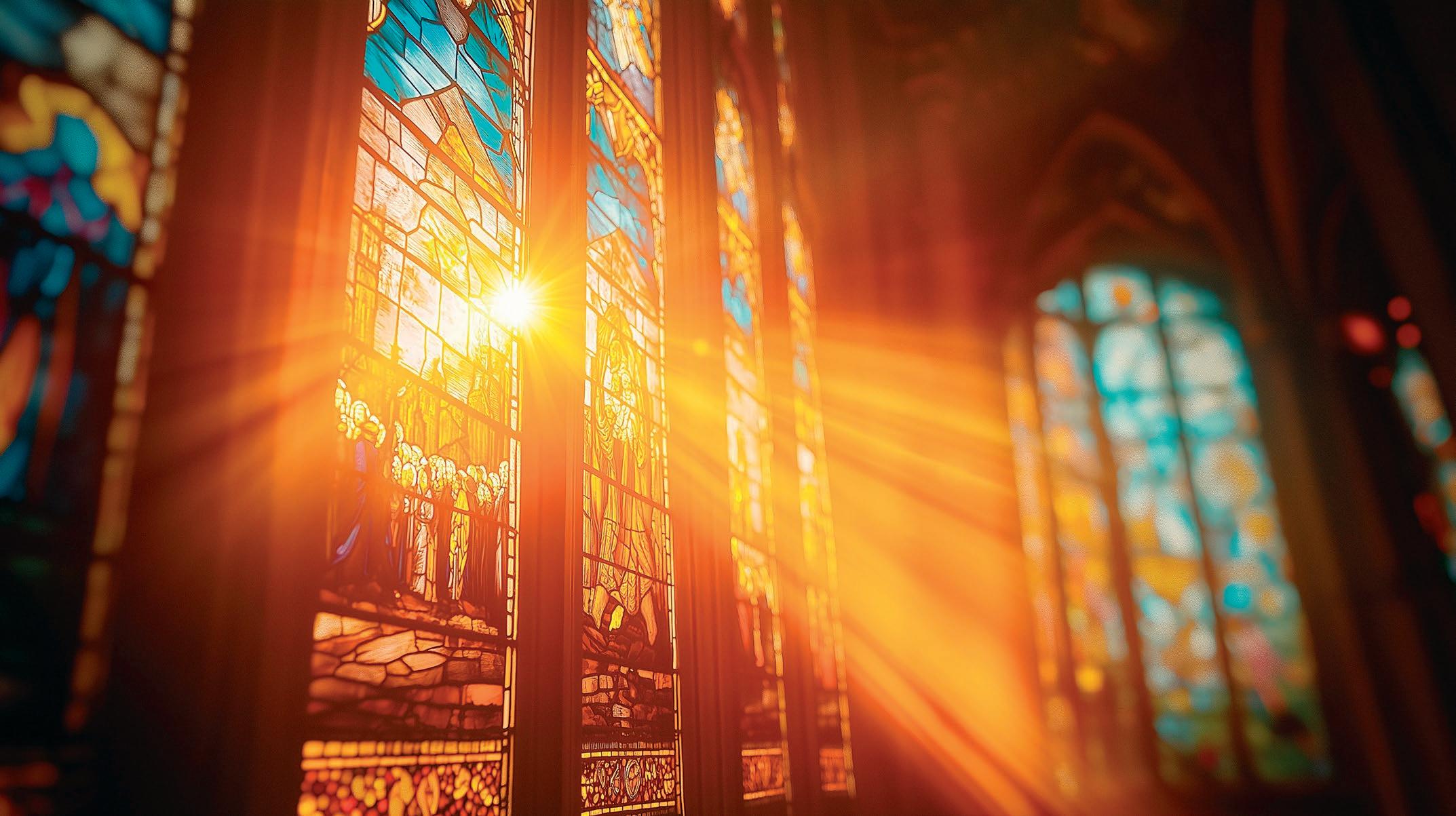

For over a decade, the diocese of Broken Bay has discerned the need for a regenerated cathedral precinct, with calls for the building of a new Cathedral to serve as the centre of worship, liturgical life, and importantly as a spiritual home for our community of the Church. We are committed to the ongoing discernment, which commenced in 2020, to plan, design, and develop the precinct that will best serve the Cathedral parish as
well as our Diocesan family. Through prayer, listening, dialogue, and synodal discernment, we are steadfast in listening to the Holy Spirit so that our cathedral precinct will be a place of welcome, hospitality, evangelisation and mission, for all who come to worship and pray. Our commitment is to build not only beautiful buildings, but to serve the needs of the People of God in Broken Bay, and indeed all who come seeking the love and peace of Christ.
The Diocese of Broken Bay will continue to strive for a synodal Church that listens to the Holy Spirit, fosters unity, and encourages the participation of all the People of God in the life and mission of the Church. We will work together, with a commitment to prayer, worship, service, and evangelisation, to build a community of discipleship that

witnesses to the love of Jesus Christ in our world.
As we move toward a Synod of the local Church of Broken Bay in 2027, the following timeline will assist us as we journey in the Universal Church towards the Synodal Assembly called by Pope Francis for 2028.

DATES
July 2025

Second half of 2025
UNIVERSAL CHURCH
Release of ‘Pathways for the Implementation Phase of the Synod’ with guidelines for its conduct
Implementation paths in local Churches and their groupings
DIOCESE OF BROKEN BAY
Planning and design of Broken Bay Synodal pathway
Second half of 2026
First half of 2027
Second half of 2027
Evaluation Assemblies in Dioceses and Eparchies
Evaluation Assemblies in national and international Episcopal Conferences, Eastern hierarchical structures, and other groupings of Churches
Announcement of Broken Bay implementation pathway towards a Diocesan Synod
Diocesan Regional Assemblies
Diocesan Synod
Draft Synthesis Report of Diocesan Synod fed into national evaluation assemblies Local discernment on implementation
First half of 2028 Continental evaluation Assemblies Implementation through 2028
Second half of 2028
Publication of the Instrumentum laboris for the works of the ecclesial Assembly in October 2028; October 2028 Celebration of the ecclesial Assembly in the Vatican

I. In Communion with Jesus Christ, Participating in his Mission
1. The Word of God and Revelation
• How deeply do we, as a diocesan community, ground our faith and mission in the Word of God, both in Sacred Scripture and in the living Tradition of the Church?
2. Witness to Christ
• In what ways are we personally and communally proclaiming the truth of Jesus Christ through our words, actions, and daily witness to His life, death, and resurrection?
3. Participation of All the Faithful
• How can we foster a deeper sense of fully conscious and active participation among all members of our parish and diocesan family, lay and ordained alike, in worship, prayer, and the sacraments?
4. Communion and Baptismal Identity
• Do we recognise and live out our shared dignity and mission as baptised members of the Body of Christ, contributing our gifts for the good of the whole Church?
5. Mission in the Modern World
• How is our diocese responding to the call to bring the joy of the Gospel into contemporary society, especially to those who are poor, vulnerable, or feel distant from the Church?
6. Transformation and Hope
• Where is God inviting our community to be agents of transformation, healing, and hope in today’s world, witnessing to mercy, justice, and the dignity of every person?
II. The Universal Call to Holiness lived out in God’s unique plan for each of us
1. The Dignity of the Baptised and the Apostolate of the Laity
• How are we, as baptised disciples, living out our shared vocation to bring Christ into our families, workplaces, and wider society through our witness and service?
2. The Vocation of Marriage
• In what ways can our diocesan community more intentionally support and strengthen Christian marriage and family life as the first school of faith and love?
3. The Vocation to Holy Orders
• How do we express gratitude, encouragement, and practical support for our bishop, priests, and deacons in their spiritual and pastoral ministry among us?
4. The Vocation to Consecrated Life
• How can we honour and promote the witness of consecrated women and men whose lives of prayer, poverty, chastity, and obedience inspire the Church toward holiness?
5. Fostering a Culture of Vocation
• What steps can our parishes, schools, and diocesan communities take to nurture a
genuine culture of vocation, helping young people discern how God is calling them to serve?
6. Co-responsibility in Mission
• How is the Holy Spirit calling our diocesan community to deeper collaboration and shared responsibility in supporting every vocation for the life and mission of the Church?
III. Catholic Education and Formation
1. The Role of Parents as Primary Educators
• How can our diocesan and parish communities better support parents in their sacred responsibility as the first educators of their children in faith and life?
2. Family-Centred Sacramental Preparation
• In what ways can we strengthen parishbased, family-centred, and school-supported sacramental preparation so that families are fully engaged and spiritually nourished in the process?
3. Collaboration with Catholic Schools
• How can our Catholic schools and parishes deepen their partnership to ensure that faith formation, prayer, and service are central to the educational experience of every child?
4. Support for Catholic Families in Public Schools
• How can we affirm and assist Catholic families in public schools through catechesis, witness, and pastoral care, ensuring their children remain connected to the life of the Church?
5. Accompaniment of Home-Schooling Families
• What can our parishes and diocese do to include and accompany home-schooling families, helping them stay connected to the wider Church community and faith formation opportunities?
6. Shared Mission of Faith Formation
• How is the Holy Spirit calling our diocesan community to work together—parents, clergy, catechists, teachers, and parish leaders—in forming young disciples who live their faith with joy and conviction?
IV. The Mission of the Church: A Church for All People
1. Care for the Poor and Vulnerable
• How are we, as a diocesan community, responding to the call to serve the poor, vulnerable, and marginalised so that all may experience the dignity and love of Christ through our actions?
2. Inclusion and Participation in the Life of the Church
• In what ways can our parishes and ministries ensure that every baptised person, regardless of age, ability, culture, or circumstance, can participate fully in the life and mission of the Church?
3. Affirming the Gifts of All
• How do we recognise, affirm, and make space for the unique gifts and contributions of every person, especially those with special needs or those who may feel excluded from the Church community?
4. Mission of Evangelisation
• How is the Holy Spirit calling us to share the joy of the Gospel beyond our parish boundaries, offering hospitality and a personal encounter with Christ to all people?
5. Co-responsibility in the Gospel Mission
• In what ways can clergy, lay faithful, and diocesan ministries work together more effectively as co-workers in the vineyard, sharing responsibility for evangelisation and service?
6. A Culture of Mercy, Peace, Justice, and Hope
• How can our diocesan community more deeply embody the fruits of the Holy Spirit, love, joy, peace, patience, kindness, and faithfulness, so that we become true instruments of reconciliation and hope in the world?
V. A New Cathedral for Broken Bay
1. Building on Faith
• How is God inviting us to see the new cathedral not simply as a building of stone, but as a living sign of our shared faith, a visible expression of the Church built upon the foundation of Christ?
2. A Home for All
• In what ways can our new cathedral become a true spiritual home, open to every person who seeks belonging, healing, and encounter with the love of Christ?
3. Listening to the Spirit
• As we discern the future of our cathedral precinct, how can we remain attentive to the voice of the Holy Spirit, ensuring that prayer, dialogue, and genuine listening shape every decision?
4. Beauty and Mission
• How might the design and life of the new cathedral reflect both the beauty of God and the mission of the Church, drawing hearts toward worship and sending disciples forth in service?
5. A Legacy of Faith for Future Generations
• What kind of spiritual and communal legacy do we hope to leave through this cathedral for those who will come after us, and how can we begin building that legacy today through our witness and generosity?
6. A Place of Encounter and Evangelisation
• How can the new cathedral precinct become a centre of hospitality and evangelisation, where worship leads to mission, and where all who enter encounter the peace and presence of Christ?
